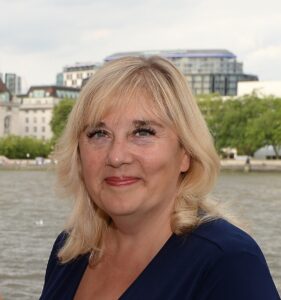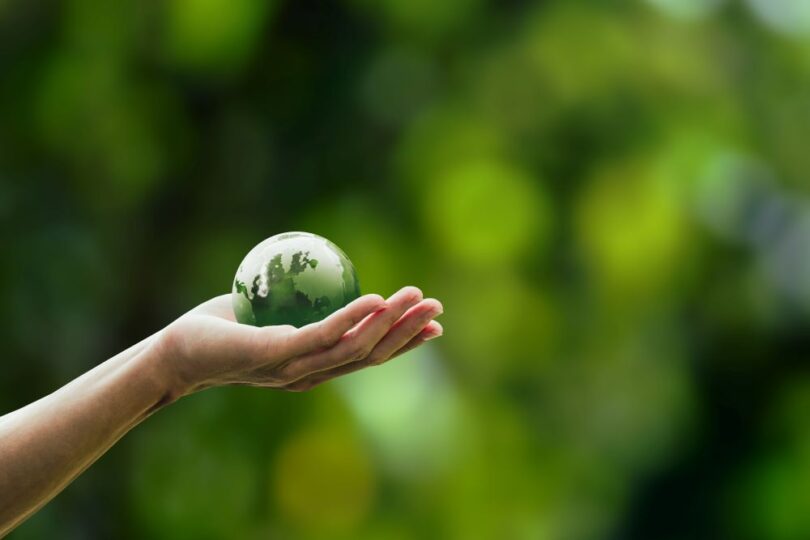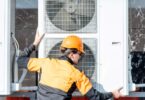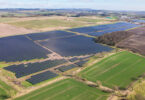The escalating climate and ecological crises are a very real and present concern for us all. For younger generations especially, the reality is causing ‘climate anxiety’, a feeling of worry for environmental collapse. In the run up to COP28 in November 2023, nations are preparing the global stocktake, an assessment of where we are in our efforts to meet net zero goals. As this assessment is undertaken, the sense of needing to do more is likely being felt by many. Here, Dr Stephanie Wray, RSK Group Chief Sustainability Officer, explains why our worries about the future have the power to propel the positive action required to overcome this era-defining challenge.

Dr Stephanie Wray, RSK Group Chief Sustainability Officer
For many, the knowledge of a degrading climate and environmental landscape is a source of great concern. We have questions about how we got here and where we are going, whether we will overcome the forecasts and what will happen if we don’t. Certainly, among my colleagues, the worry and fatigue are something we all share, so for those who feel anxious about climate change, know that you are not alone.
What are the questions we grapple with most – those that reflect our worries and cause the greatest concern? Readers may share many of the fears that my colleagues do and whose questions have formed this commentary. I’ve tried to answer these questions thoughtfully and honestly because everyone involved in COP and those working hard to mitigate against climate change around the world feels like there is something we can do.
Shared experiences
Why and how did it all start? How do we prevent climate change?
If we look back to where human activity began to drive climate change – the time of the industrial revolution some 200 years ago – we know it is too late to prevent the incoming change altogether. Our challenge now is to limit the effects on nature and our society as far as possible and to decarbonise as quickly as possible to prevent any further damage. We may not be able to prevent what has already occurred, but we can stop it escalating further. As delegates convene in Dubai for COP28, advancing measures to prevent further escalation will be a priority.
What will we have to suffer? What will happen as the effects of climate change are felt?
This summer, we have seen a new reality across Europe. July was the hottest month ever on record, with temperatures across parts of Spain, Greece and Italy reaching more than 45°C, resulting in devastating wildfires, and exceeding 50°C in the Arizona desert in the US. These temperatures are one of the effects we are beginning to see, but the extent and specific impact will differ depending on where in the world you are. We may also expect to see more severe storms; increased drought; a warming, rising ocean; loss of species; food scarcity; more health risks; and poverty and displacement.
Severe storms and flooding are having a big impact on urban areas; how do we make sure our infrastructure can cope?
As we face these pressures, there is a lot that needs to be done to make sure human infrastructure is climate resilient. In some areas of the world, there may be nothing that can be done, and in some coastal areas, a policy of ‘managed retreat’ will be the only rational response to rising sea levels. In many cases, we are talking about increases in extremes of temperature and greater risk of flood or wildfire. There is a lot that can be done to upgrade infrastructure to meet those challenges, and in doing so we need to make the most of nature-based solutions, such as natural flood management, the use of vegetation to combat the urban heat island effect and restoring natural forests to be more resilient to wildfire. Urgently, though, we need to make sure that we understand the implications on our societies and businesses of the likely climate change scenarios and act swiftly.
What do you think the reversal of climate change will look like? Are we going back to basics or relying on new technology?
Certainly, in the short term, adaptation will be about new technology, such as electric vehicles, but we need to look at some of the existing ‘tech by nature’ that is already up and running. For example, the ‘whale pump’ is a phenomenon whereby great whales bring essential minerals up to the ocean surface from deep water. Those minerals enable the growth of tiny phytoplankton, which produce oxygen and absorb carbon dioxide naturally. It’s been calculated that if we allowed whales to return to their pre-whaling numbers, they would sequester the same amount of carbon as around four Amazon rainforests. Even a 1% increase in phytoplankton productivity thanks to whale activity would capture hundreds of millions of tonnes of additional carbon dioxide a year, equivalent to the sudden appearance of 2 billion mature trees.
If we are going to invest in that type of natural solution, though, we will also need to completely rethink how we value aspects of our society. Concepts such as gross domestic product – how we measure the growth of an economy and considered to be a good thing – may need to make way for more inclusive approaches that consider the effects on our environment and wellbeing.
We have concerns about the natural world, such as the impact on wildlife of melting ice caps, increased flooding, deforestation and overheating of the planet; what action is being taken to limit and reverse this damage? Can it make a difference?
Looking more broadly than technological adaptation, there is action being taken – the signatories to the Paris Agreement are embarking on strategies to limit the worst effects of climate change by keeping the increases in global temperature below 2°C and ideally below 1.5°C. While this is a collective problem, and I certainly do not want to push responsibility down to individuals, we can all do our part too: by modifying our own behaviour but also by being engaged consumers. Asking hard questions of the companies we buy from about their climate performance, thinking about where our money is invested and keeping the issue on the table in elections. That has an impact.
The repercussions of climate change are vast and far reaching. They will impact us all in some way or another. When I speak to colleagues about their own concerns, worry for the future, their children and their children’s children is tangible: “we are sleepwalking into environmental catastrophe”, “the specifics aren’t clear and the task feels too big”, “we are causing the next generation to be anxious about climate change with inaction”.
Anxiety to action
Can we make a difference collectively, or will it be futile without transformation in our political and economic systems?
When we think about action, or perhaps our record of inaction, it is important to remember that we as individuals can make a difference. We do need a global effort that unites across political and economic systems, but that doesn’t make individuals powerless. If we all refuse to buy from companies that are profiting from resource exploitation, refuse to invest our money in pension funds or savings that support polluting industries and put pressure on our elected representatives to take meaningful action, then together we can make a difference.
What impact will the action of business, industry, etc., have compared to the actions of individuals?
This extends to our role as businesses because business is, at its most fundamental, made up of individuals. Often when I advise companies on sustainability, the reason they have decided to act now is a personal one. A business leader may be a birdwatcher, a diver or a keen walker and they have started to notice the changes in the environment around them. They may have just had children or grandchildren and are worried about the world they will inherit.
Never underestimate the power of that personal connection with nature – we all need to do what we can. For some of us, it will be small changes and choices that are additive with others around them. For others with political or economic power, or with large social followings, the effects may be larger.
Change is an additive and synergistic thing. Together, our actions, no matter how small, will make a difference, for it is our concern for the future that is driving real change.
Dr Stephanie Wray is Chief Sustainability Officer of the RSK Group and has been an environmental consultant for 25 years, specialising in biodiversity and ecosystem protection. In 2020, she founded Nature Positive, an environmental management consultancy of specialists working with business leaders and investors.







